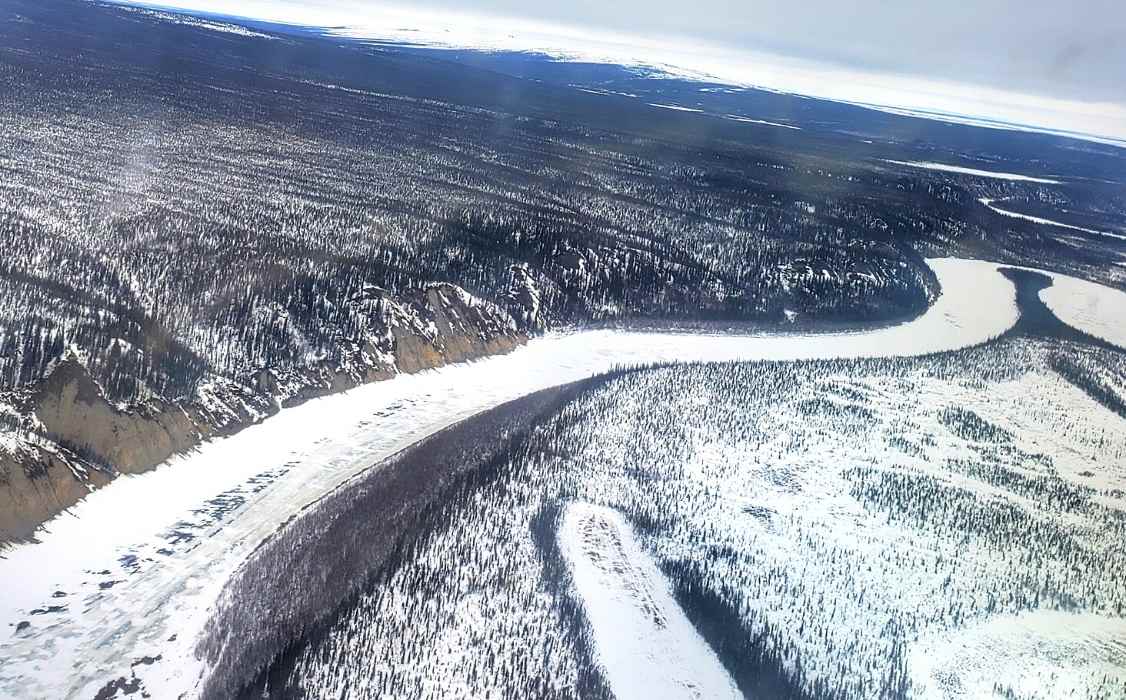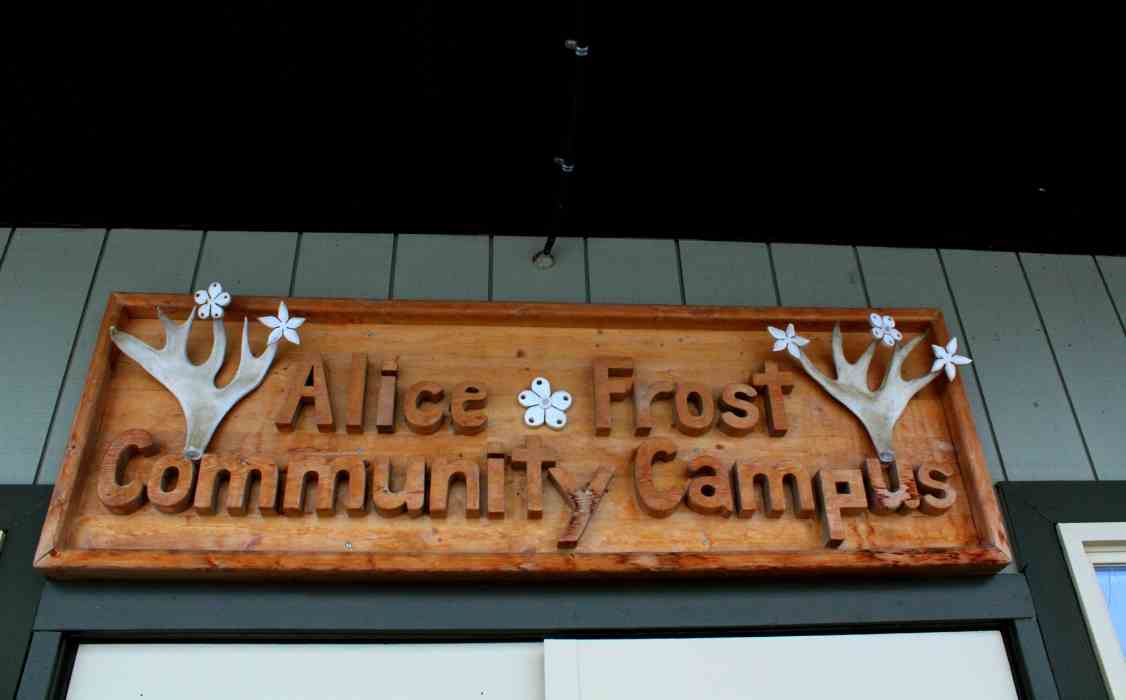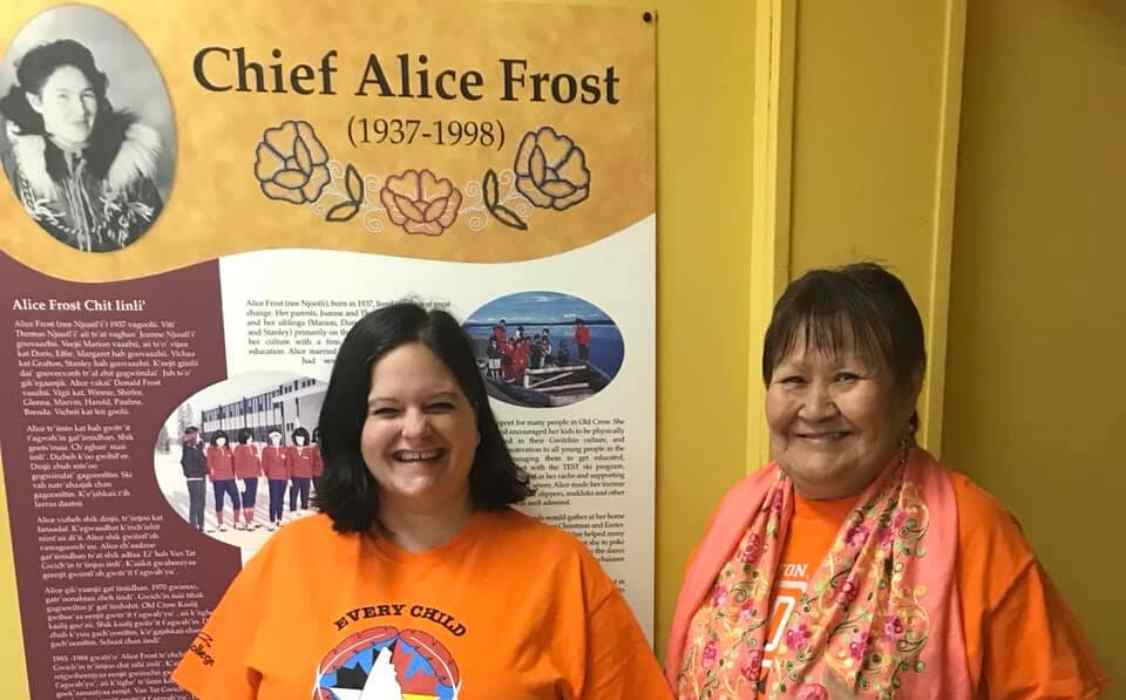Supportive distance learning in Old Crow
Distance learning, or online learning, provides students with access to class instruction over the Internet, rather than in a classroom.
Learn more
The community of Old Crow is Yukon's only fly-in community, and is located within the Traditional Territory of the Vuntut Gwitchin First Nation.
Strong partnerships with the Vuntut Gwitchin First Nation, Chief Zzeh Gittlit School and other agencies have ensured the success of the campus programming in this most northerly Yukon community of three hundred people.


The campus building is named after Chief Alice Frost (1937-1998) who was a fierce advocate for education and instrumental in creating a College campus in Old Crow. She grew up strong in her culture with a firm value of the importance of both physical and mental fitness.

The team at the Alice Frost Campus provides a variety of services from employment skills assistance, like writing your resume, to academic advising and counselling.
The campus also offers the community of Old Crow access to computers and internet, and space to host community dinners and lunch meetings. Contact the campus to find out more.
Photo: Bree Josie (L) and Renee Charlie (R)
Project Management Professional (PMP®) Certification from the Project Management Institute (PMI) is the industry standard for demonstrating competence and a solid foundation of project management skills.
This one-day course provides students with an understanding of Emergency Response Plans, Maintenance Management Plans and Standard Operating Procedures. Students will learn how to develop and use these important tools to efficiently support operation and maintenance duties.
This 1 day course gives the participants an opportunity to learn a variety of techniques for iron and manganese removal from drinking water.
This 3.5 day course is designed to prepare you to write their Environmental Operators Certification Program (EOCP) exam for Bulk Water Delivery (required by the Yukon Government Drinking Water Regulation).
This 27 hour course is designed to prepare you to write your Environmental Operators Certification Program (EOCP) certification for Water Treatment Level 1 or 2. You will go at your own pace through online modules and you will have access to an instructor to answer any questions you may have.
For Fall 2024: We are running two courses WO001 – Basic Small Water Systems Operations and WO001L-Small Water System Operator Lab together to allow for both in-class and hands-on learning (improved learning experience).
In this course, students explore the written and oral skills needed to communicate in diverse organizational and cultural contexts.
This course introduces students to critical reading, critical thinking, and academic writing through the study and application of the principles of university-level discourse. English 100 focuses on expository writing.
This course introduces students to four literary genres: short fiction, poetry, the novel, and drama. Students learn the fundamentals of university-level literary study and explore major themes suggested by the selected texts.
This course examines Yukon First Nations history, culture and governance. Topics covered include pre-contact cultures of Yukon, subsistence economies, social and political organizations, cultural expressions, and cultural protocols.
NOST 229 is a variable-topics course, designed to permit Northern Studies and other students to take advantage of the expertise of visiting scholars or professors and other-institution courses, to pilot a new course, or to enable students to engage in directed studies or guided independent resear
MS Project is a powerful industry standard software tool than can help you manage projects, programs, and multiple tasks.
This course covers the major physical, cognitive, and psychosocial development of normal growth throughout the human lifespan.
Tourism Labour Market - Case Study
The goal of COMP 161 is for students to become independent and effective computer application users, in both their current studies and future careers. The course will provide students with hands-on interaction with common applications for analysis and problem-solving.
Distance learning, or online learning, provides students with access to class instruction over the Internet, rather than in a classroom.
Learn more